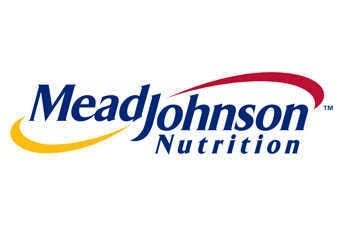
Mead Johnson is increasing production capacity in the Netherlands and in the US to serve demand in Asia.
The Enfamil infant formula owner announced in September an expansion of its production in Singapore to serve Asia and now has plans for investment in Europe and North America to feed growth in markets like China and Hong Kong.

Discover B2B Marketing That Performs
Combine business intelligence and editorial excellence to reach engaged professionals across 36 leading media platforms.
“We are expanding capacity at our plant in the Netherlands. We are also adding capacity in our US facilities as we begin to see the e-commerce channel between the US and China open up as well,” CEO Kasper Jakobsen said yesterday (17 February).
The Mead Johnson chief said the investment was needed to supply continued growing demand for imported products and to try to build a more “flexible” business to cater for the rise of the e-commerce channel in China.
“We’ve also seen that the consumer has increasingly migrated to imported product and away from locally-produced products,” Jakobsen told the Consumer Analyst Group of New York investment conference in Florida.
“The marketplace has changed very fast in the last couple of years, particularly the proliferation of new sales channels. It’s a very important trend. Most dramatic has been the emergence of e-commerce within China but even within e-commerce there are changes taking place. It is increasingly becoming about business-to-consumer as opposed to consumer-to-consumer and we believe that trend will continue for the years to come.”

US Tariffs are shifting - will you react or anticipate?
Don’t let policy changes catch you off guard. Stay proactive with real-time data and expert analysis.
By GlobalDataLast year, Mead Johnson opened an e-store on Tmall, the Alibaba-hosted online site and seen a “tremendous explosion” following the launch of a branded “destination” on instant messaging service WeChat.
Jakobsen said Mead Johnson’s sales in China and Hong Kong rose 5% in constant dollar terms in 2014 amid the slowdown in the market.
To continue to grow, Mead Johnson must “build flexibility” into its operations. “We were working really aggressively to go through this transition,” he said. “We are building flexibility to address multiple consumer preferences by expanding our portfolio, a wider array of different products to the Chinese consumer.”
One analyst said Mead Johnson’s “strength” in China had been the “reputation and consistency” through its Enfa brand but said the US group’s rivals in the country had used different trademarks to meet different price points. Jakobsen was asked whether launching more products under Enfa could “dilute the brand equity” and whether the company had thought about pursuing other trademarks.
Jaksobsen said: “We’re very confident we have the ability within our brand architecture to evolve it, in other words not be necessarily tied to the past. Strategy is all about evolving as dynamics in the marketplace change. At the same time, we have derived enormous efficiency from the fact we’ve been able to direct so much of our investment in a single brand and we have on the back of that built the strongest single brand in China today. We can use that as a strength and we can broaden our portfolio by differentiating sufficiently in the minds of the consumer to take advantage some of these emerging trends.”





